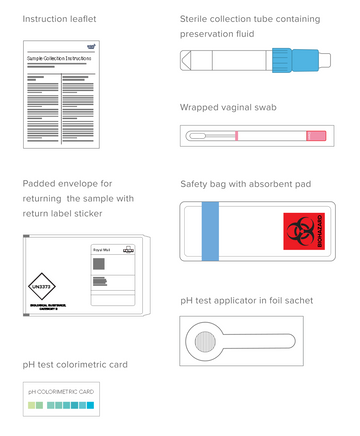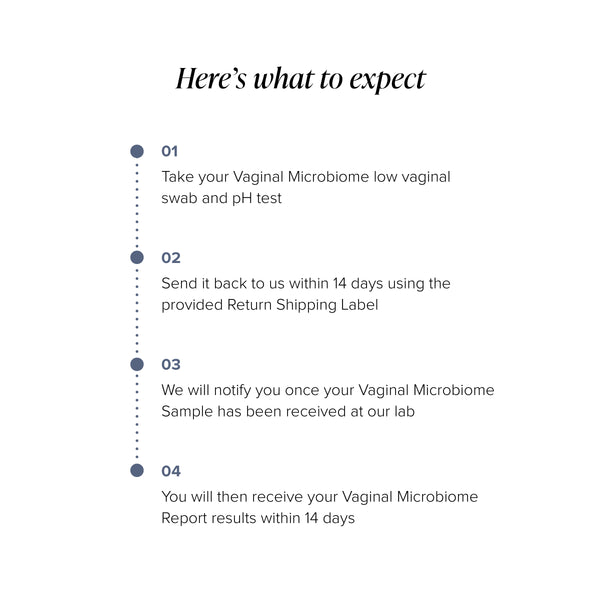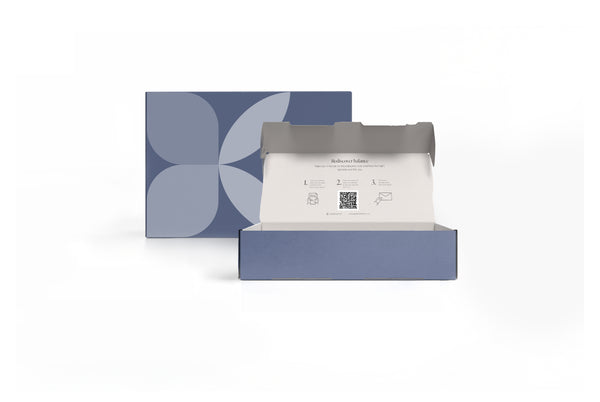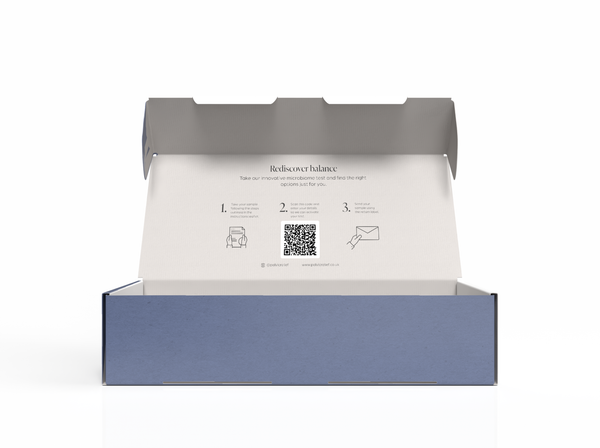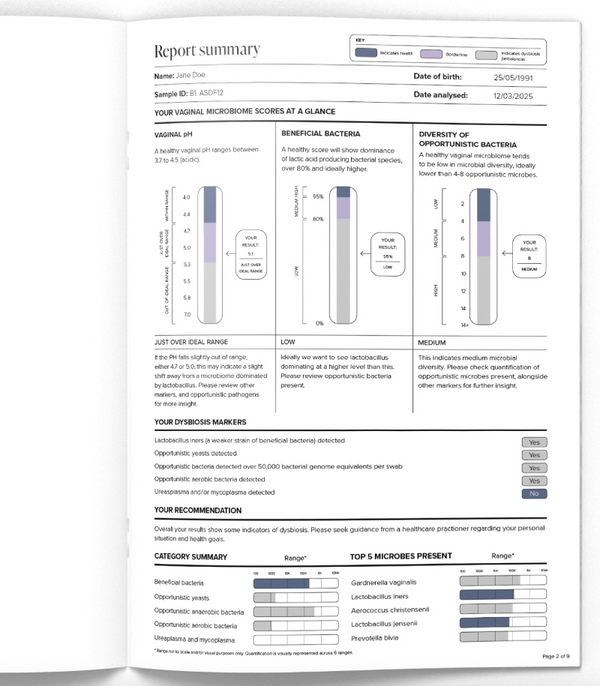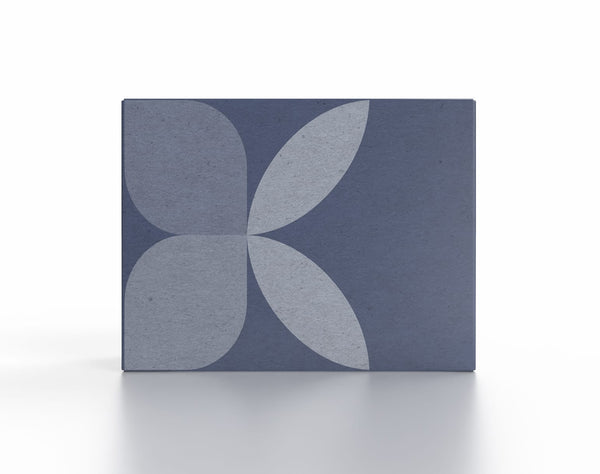
Vaginal Microbiome Test
- Comprehensive at-home vaginal microbiome test
- Results within 14 days from arrival at lab
- Absolute quantification of 50+ species
- Easy-to-interpret report and personalised insights
- Free shipping
Tax included
Shipping calculated at checkout
In stock
Your vaginal microbiome is a dynamic environment influenced by external and host factors which can impact your genitourinary health.
Our vaginal microbiome at-home test kit uses Precision Microbiome Profiling (a qPCR based approach) that supports comprehensive vaginal microbiome profiling allowing for in-depth exploration into the microbial species present in your vaginal environment.
Our test reports on the presence and exact quantification of 53 different microbes, including:
Beneficial Bacteria (14 strains): Includes lactic acid-producing bacteria commonly associated with a healthy vaginal microbiome. These beneficial microbes, primarily Lactobacillus and Bifidobacterium species, are known to support vaginal health by maintaining a low pH and preventing overgrowth of harmful microbes.
Opportunistic Yeast (6 strains): Includes strains of opportunistic yeast, such as Candida species, which are commonly linked to vulvovaginal candidiasis VVC (known as vaginal thrush).
Opportunistic Anaerobic Bacteria (23 strains): These strains are commonly associated with bacterial vaginosis (BV). Anaerobic bacteria can disrupt the balance of the vaginal microbiome and are often linked to unpleasant symptoms and increased risk of infection.
Ureaplasma and Mycoplasma (3 strains): Includes species of Ureaplasma and Mycoplasma, which are known to be part of the genital tract microbiota but may also contribute to reproductive health issues in certain conditions
You will receive a comprehensive, easy-to-interpret report within 14 days of us receiving your sample at our laboratory. If an imbalance is reported, the results can guide a targeted and effective treatment plan to restore health.
Download a sample report to explore the insights and recommendations you will receive.
In this short video Jess, our Intimate Health Specialist, provides key guidance to ensure you collect your sample correctly and feel confident throughout the process.
Check out our Frequently Asked Questions page to learn more about our Vaginal Microbiome Test.
Test Box content
